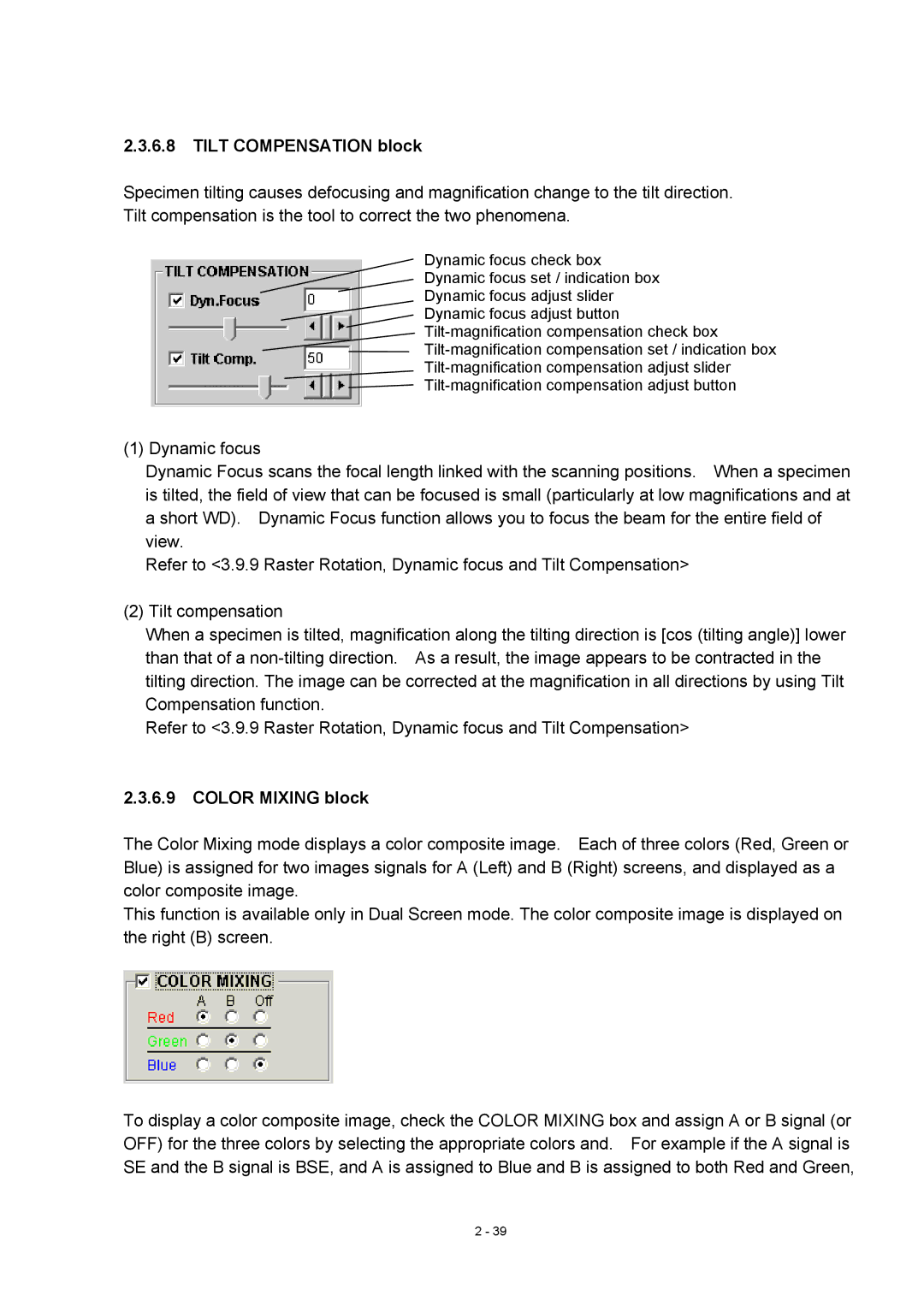
2.3.6.8TILT COMPENSATION block
Specimen tilting causes defocusing and magnification change to the tilt direction. Tilt compensation is the tool to correct the two phenomena.
Dynamic focus check box
Dynamic focus set / indication box
Dynamic focus adjust slider
Dynamic focus adjust button
(1) Dynamic focus
Dynamic Focus scans the focal length linked with the scanning positions. When a specimen is tilted, the field of view that can be focused is small (particularly at low magnifications and at a short WD). Dynamic Focus function allows you to focus the beam for the entire field of view.
Refer to <3.9.9 Raster Rotation, Dynamic focus and Tilt Compensation>
(2) Tilt compensation
When a specimen is tilted, magnification along the tilting direction is [cos (tilting angle)] lower than that of a
Refer to <3.9.9 Raster Rotation, Dynamic focus and Tilt Compensation>
2.3.6.9COLOR MIXING block
The Color Mixing mode displays a color composite image. Each of three colors (Red, Green or Blue) is assigned for two images signals for A (Left) and B (Right) screens, and displayed as a color composite image.
This function is available only in Dual Screen mode. The color composite image is displayed on the right (B) screen.
To display a color composite image, check the COLOR MIXING box and assign A or B signal (or OFF) for the three colors by selecting the appropriate colors and. For example if the A signal is SE and the B signal is BSE, and A is assigned to Blue and B is assigned to both Red and Green,
2 - 39
